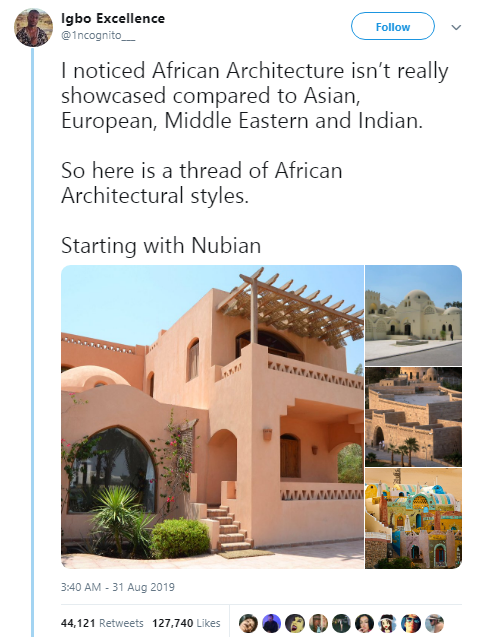All around general blog primarily centered around politics. 23. Bisexual. Anarchist.
Last active 60 minutes ago
Don't wanna be here? Send us removal request.
Link
In the minutes before the first detainees set foot on Guantánamo, “you could literally hear a pin drop,” Brandon Neely, a military-police officer, recalled, in an interview with the Guantánamo Testimonials Project, at the University of California, Davis, in 2008. “Everyone, including myself, was very nervous,” he said. It was January 11, 2002. The Bush Administration had decided that the Geneva Conventions did not apply to the war on terror, which meant that the men captured abroad could be deprived of the rights of prisoners of war. That day, Neely’s job was to haul captives from a bus to a holding area for processing, and then to small, outdoor cages, where they would spend nearly four months sleeping on rocks, and relieving themselves in buckets, while soldiers constructed more permanent cellblocks. “I keep thinking, Here it comes—I am fixing to see what a terrorist looks like face to face,” Neely, who was twenty-one at the time, said.
The first man off the bus had only one leg. He wore handcuffs, leg shackles, earmuffs, blackout goggles, a surgical mask, and a bright-orange jumpsuit. As two M.P.s dragged him to the holding area, someone tossed his prosthetic leg out of the bus. All afternoon, guards screamed at the detainees to shut up and walk faster, called them “sand niggers,” and said that their family members and countries had been obliterated by nuclear bombs.
Later that day, Neely and his partner brought an elderly detainee to the holding area and forced him to his knees. When they removed his shackles, the man, who was shaking with fear, suddenly jerked to the left. Neely jumped on top of him, and forced his face into the concrete floor. An officer shouted “Code Red!” into a radio, and the Internal Reaction Force team raced to the scene and hog-tied him. He was left for hours in the Caribbean sun.
Neely later found out that the elderly detainee had jerked because, when he was forced to his knees, he thought he was about to be shot in the back of the head. In his home country, Neely said, “this man had seen some of his friends and family members executed on their knees.” The man’s response was hardly unique; a military document, drafted ten days later for the base commander, noted that “the detainees think they are being taken to be shot.”
Officially, the job of the Internal Reaction Force was to restrain unruly detainees, to prevent them from injuring themselves or the guards. But, in practice, “IRFing” was often done as a form of revenge, initiated liberally—for example, when a detainee was found to have two plastic cups instead of one, or refused to drink a bottle of Ensure, because he thought that he was being given poison. IRFing typically involved a team of six or more men dressed in riot gear: the first man would pepper-spray the detainee, then charge into the cell and, using a heavy shield and his body weight, tackle the detainee; the rest would jump on top, shackling or binding the detainee until he was no longer moving. Although many of the detainees arrived malnourished, with their bodies marked by bullet wounds and broken bones, some IRF teams punched them and slammed their heads into the ground until they were bloody and unconscious. “You could always tell when someone got IRFed, as the detainees throughout the camp would start chanting and screaming,” Neely recalled. Once, he watched an IRF team leader beat a detainee so badly that he had to be sent to the hospital and the floor of his cell was stained with blood; the next time the team leader was in the cellblock, another detainee yelled out, “Sergeant, have you come back to finish him off?”
In Islam, the Quran is considered the transcribed word of God; some Muslims keep the book wrapped in cloth, never letting it touch unclean surfaces. To dispel notions that the United States was at war with Islam, detainees were allowed to have private meetings with a Muslim military chaplain, and were given copies of the Quran. Some guards saw an opportunity to torment the detainees—by tossing the Quran into the toilet, for example, or by breaking the binding under the guise of searching for “weapons.” Desecration of the Quran provoked riots in the cellblocks, which resulted in IRF teams storming into the cells and beating up detainees.
One day, after an interrogator kicked a Quran across the floor, detainees organized a mass suicide attempt. “Once every fifteen minutes, a prisoner tried to hang himself by tying his sheet around his neck and fastening it through the mesh of the cage wall,” James Yee, an Army captain who served as the Muslim chaplain in Guantánamo, recalled in his memoir, “For God and Country,” from 2005. “As soon as the prisoner was taken to the hospital, another detainee would be found—his sheet wound around his neck and tied to his cage wall. The guards would rush in to save him and the chaos would start again. The protest lasted for several days as twenty-three prisoners tried to hang themselves.”
Military-police officers so frequently abused the Quran during cell searches that detainees demanded that the books be kept in the library, where they would be safe. Yee, who had converted to Islam in the early nineties, sent a request up the chain of command, but was rebuffed. “I felt this decision stemmed from the command’s desire to be able to tell the media that we gave all detainees a Quran out of sensitivity to their religious needs,” he wrote. The detainees protested, and so “it was decided that every detainee who refused the Quran would be IRFed.” While the detainees were receiving medical treatment for their post-IRF injuries, the Qurans were placed back in their cells.
In time, Yee came to believe that “Islam was systematically used as a weapon against the prisoners.” Guards mocked the call to prayer, and manipulated Islamic principles of modesty—by having female guards watch naked detainees in the showers, for example—to create tension as an excuse to exact violence. During interrogations, detainees were forced to perform mock satanic rituals, or were draped in the Israeli flag.
Donald Rumsfeld told reporters that the men in Guantánamo were “among the most dangerous, best-trained, vicious killers on the face of the earth.” But after Brandon Neely’s first shift, on the day the detention camp opened, “no one really spoke much,” he recalled. “I went back to my tent and laid down to go to sleep. I was thinking, Those were the worst people the world had to offer?”
675 notes
·
View notes
Text
it’s crazy how the right’s response to valid concerns is “no. that’s not going to happen.” and then it happens.
2K notes
·
View notes
Text
it’s crazy how the right’s response to valid concerns is “no. that’s not going to happen.” and then it happens.
2K notes
·
View notes
Text

not to be an asshole or anything but this really rubs me the wrong way. solitary confinement is "something usually reserved for cannibals"???? what motherfucking planet do you live on? kalief browder was kept in solitary confinement for 800 days for no fucking reason because he was falsely accused of stealing a backpack and was held at riker's island with no trial. do you know how many prisoners, especially black prisoners who are not even in prison for violent crimes--not that anyone deserves solitary confinement but you know what i'm trying to say--are held in solitary confinement simply based on the fact that police officers and prison guards are racist? "something usually reserved for cannibals". get real
97 notes
·
View notes
Text

So far 6 hospitals have complied with Trump's illegal executive order to stop gender affirming care for people under 19 or face a loss of federal funding. The fact that so far its only been 6 hospitals, and the protests this has provoked, are my tiny bit of reassurance right now.
104 notes
·
View notes
Text
I’m getting fed up with this whole “feminism as an identity” thing. Time for “feminism as an action.”
So instead of asking “can a feminist do x?” ask “is doing x a feminist action!”
Can a feminist take her husband’s last name? Mu. Null. Question un-valid, please un-ask question.
Is taking your husband’s last name a feminist action? No it isn’t. It doesn’t challenge the patriarchy in anyway, it is the status quo thing to do, it is what is expected of women, and it carries a lot of historical baggage about ownership and shit like that.
But that’s okay, your life choices don’t have to be 100% dictated by your politics unless you want them to. And it’s okay to really want to take his name while recognizing that you also want to do the feminist thing and keep your own, and it’s okay to feel conflicted and have a hard time making the choice. But no more of this enabling “as long as I made the choice myself it is a feminist choice” -bullshit. Own your choices, even the ones that aren’t informed by your feminist politics. You are still a human being and people do shit that contradicts their politics and even interests all the time. Just stop pretending that everything you do is feminist because you are a feminist, that’s not how it works.
103K notes
·
View notes
Text
Everyone needs to understand that the capitalist class would rather kill all life on Earth, including, ultimately themselves, then give up their money or their power. This isn’t a hypothetical thing, by the way; the oil companies have already made that choice.
97K notes
·
View notes
Text
The Black Man Can!
Speak affirmations to our children daily and watch the amazing difference it makes in their days, and in their lives. Children want to be taught, and they want to be guided, this man is laying the ground work for their success through affirmations and positivity. Speak well to your children as well as about your children, they require spiritual watering just as a flower thirsts for water.
536 notes
·
View notes
Note
it has been interesting seeing the tides turn back from people criticizing the education system to making fun of individuals for lacking knowledge (eg. the meme like "actually, they told us about the scramble for Africa in hs, but you were too busy doodling.") have you noticed this too/ any thoughts?
i think that those points aren't very kind, but are in many ways not only correct but expressing rightful frustration at (mostly white) students' selective memory for historical events/general knowledge, contingent upon whether or not they believe said information applies to them. like, i'd wager the average high school aged kid in africa probably has more knowledge of the scramble for africa (though they may not know it in normative u.s. textbook terms) than many u.s. students, despite a nominally more "developed" educational system. why? bc when you're living in a multiply-colonized society facing the material impacts of said ongoing colonialism every day....this shit is not avoidable. you know it whether you want to or not. meanwhile, many of those living in the imperial core - at least for now - can literally and figuratively tune out the violent realities that they (we) are party to + beneficiaries of. in a choice between being razzed for not paying attention in school, and having my community razed, enslaved, and stripped of resources in order to satisfy colonial greed....well, i'm gonna taking the razzing any day, even if it seems mean.
i also think the age dynamics here are worth noting: people say this to each other from adult to adult, typically because the ignorant adult claims that the u.s. educational system alone is at fault for their lack of knowledge (always concentrated around issues of empire and white supremacy and, curiously, never about the fandom they happen to be obsessed with....). except...no. because they're adults with an internet connection - the accusation that they were "doodling in history class" is a gesture at a broader set of decisions to remain ignorant & incurious long after history class/high school has ended. maybe your school taught you about the scramble for africa (most likely it was at least mentioned) and maybe not. but in a conversation between adults on a global internet, with free resources only keystrokes away (and in many cases bundled and handed to us by public scholars) the choice to "keep doodling" is an active one and a political one, and the blame rests on the shoulders of the privileged who refuse to learn about empire's "Others".
154 notes
·
View notes
Photo














i feel like we don’t talk about things like this enough
317K notes
·
View notes
Text

These men just stole the personal information of everyone in America AND control the Treasury. Link to article.
Akash Bobba
Edward Coristine
Luke Farritor
Gautier Cole Killian
Gavin Kliger
Ethan Shaotran
Spread their names!
2K notes
·
View notes
Text
Aug 2, 2018 by Henry Giroux
The nightmares that have shaped the past and await return slightly just below the surface of American society are poised to wreak havoc on us again. America has reached a distinctive crossroads in which the principles and practices of a fascist past and neoliberal present have merged to produce what Philip Roth once called “the terror of the unforeseen.” Since the 1970s, American society has lived with the curse of neoliberalism, or what can be called the latest and most extreme stage of predatory capitalism. As part of a broader comprehensive design, neoliberalism’s overriding goal is to consolidate power in the hands of the financial elite. As a mode of rationality, it functions pedagogically in multiple cultural sites to ensure no alternatives to its mode of governance can be imagined or constructed
[ ... ]
Neoliberalism’s hatred of democracy, the common good and the social contract has unleashed generic elements of a fascist past in which white supremacy, ultra-nationalism, rabid misogyny and immigrant fervor come together in a toxic mix of militarism, state violence and the politics of disposability. Modes of fascist expression adapt variously to different political historical contexts assuring racial apartheid-like forms in the postbellum U.S. and overt encampments and extermination in Nazi Germany. Fascism—with its unquestioning belief in obedience to a powerful strongman, violence as a form of political purification, hatred as an act of patriotism, racial and ethnic cleansing, and the superiority of a select ethnic or national group—has resurfaced in the United States. In this mix of economic barbarism, political nihilism, racial purity, economic orthodoxy and ethical somnambulance, a distinctive economic-political formation has been produced that I term neoliberal fascism.
a few more prescient highlights from this very long but absolutely incredible, clear eyed and well sourced article from 7 years ago below the cut.
Under these accelerated circumstances, neoliberalism and fascism conjoin and advance in a comfortable and mutually compatible movement that connects the worst excesses of capitalism with authoritarian “strongman” ideals—the veneration of war, a hatred of reason and truth; a celebration of ultra-nationalism and racial purity; the suppression of freedom and dissent; a culture that promotes lies, spectacles, scapegoating the other, a deteriorating discourse, brutal violence, and, ultimately, the eruption of state violence in heterogeneous forms. In the Trump administration, neoliberal fascism is on steroids and represents a fusion of the worst dimensions and excesses of gangster capitalism with the fascist ideals of white nationalism and racial supremacy associated with the horrors of the past. 7 Neoliberal structural transformation has undermined and refigured “the principles, practices, cultures, subjects and institution of democracy understood as rule by the people.”8 Since the earlier ’70s, the neoliberal project has mutated into a revolt against human rights and democracy and created a powerful narrative that refigures freedom and authority so as to legitimize and produce massive inequities in wealth and power.9 Its practices of offshoring, restructuring everything according to the dictates of profit margins, slashing progressive taxation, eliminating corporate regulations, allowing unchecked privatization and the ongoing commercializing of all social interactions “inflicts alienating misery” on a polity newly vulnerable to fascist ideals, rhetoric and politically extremist movements.10 Furthermore, the merging of neoliberalism and fascism has accelerated as civic culture is eroded, notions of shared citizenship and responsibility disappear, and reason and informed judgment are replaced by the forces of civic illiteracy. State-sanctioned attacks on the truth, facts and scientific reason in Trump’s America are camouflaged as one would expect when led by the first reality TV president—by a corporate-controlled culture of vulgarity that merges celebrity culture with a nonstop spectacle of violence. Neoliberalism strips democracy of any substance by promoting an irrational belief in the ability of the market to solve all social problems and shape all aspects of society. This shift from a market economy to a market-driven society has been accompanied by a savage attack on equality, the social contract and social provisions as wages have been gutted, pensions destroyed, health care put out of reach for millions, job security undermined, and access to crucial public goods such as public and higher education considerably weakened for the lower and middle classes. In the current historical moment, neoliberalism represents more than a form of hyper-capitalism, it also denotes the death of democracy if not politics itself.
[ ... ]
What is often labeled as an economic crisis in American society is also a crisis of morality, sociality and community. Since the 1970s, increasing unregulated capitalism has hardened into a form of market fundamentalism that has accelerated the hollowing out of democracy through its capacity to reshape the commanding political, social and economic institutions of American society, making it vulnerable to the fascist solutions proposed by Trump. As an integrated system of structures, ideologies and values, neoliberalism economizes every aspect of life, separates economic activity from social costs, and depoliticizes the public through corporate-controlled disimagination machines that trade in post-truth narratives, enshrine the spectacle of violence, debase language and distort history. Neoliberalism now wages a battle against any viable notion of the social contract, solidarity, the collective imagination, the public good and the institutions that support them. As the realm of the political is defined in strictly economic terms, the institutions, public goods, formative cultures and modes of identity essential to a democracy disappear, along with the informed citizens necessary to sustain them.
[ ... ]
While it is true the U.S. may not be putting millions in gas chambers or promoting genocide, there remain reworked elements of the past in the present. For instance, there are already echoes of the past in existing and expanding infrastructures of punishment—amounting to a carceral state—that have grown exponentially in the past four decades. In fact, the United States has the largest prison system in the world, with more than 2.5 million people incarcerated. Astonishingly, this figure does not include immigrant detention centers and other forms of encampment around the U.S. border with Mexico. The visibility of this state-sanctioned punishing apparatus and its similarity to a fascist history was on display recently with the caging of young immigrant children who were forcibly separated from their parents at the southern border for months at a time. Needless to say, such institutions and actions resonate with deeply disturbing events of a dark past for which the violent separation of families was a hallmark feature of fascist brutality.
23 notes
·
View notes
Text
I just want this on the record right now that I'm saying Kamala Harris is going to run for president again in 2028 and all the shit that yall are panicking about right now, planes falling out of the sky, trade wars, ICE raids, this DOGE shit, etc. Kamala Harris is going to run on doing all that same shit more competently than Donald Trump and people are going to tell you that you have to vote for her. the same people making fun of Trump voters for believing he'll bring the price of eggs down will tell you that you have to vote for Kamala so she can fix this while she's telling everyone she will make it worse.
352 notes
·
View notes
Text
revealing that the rug pull of USAID shutdowns definitely killing people in the global south is highlighting the fact that aid was always politically contigent and vastly more risky to the average person than like infrastructural investments. like operating and occupying a port has nothing on the sheer misery withdrawing food support and aids + tuberculosis medication has.
832 notes
·
View notes


